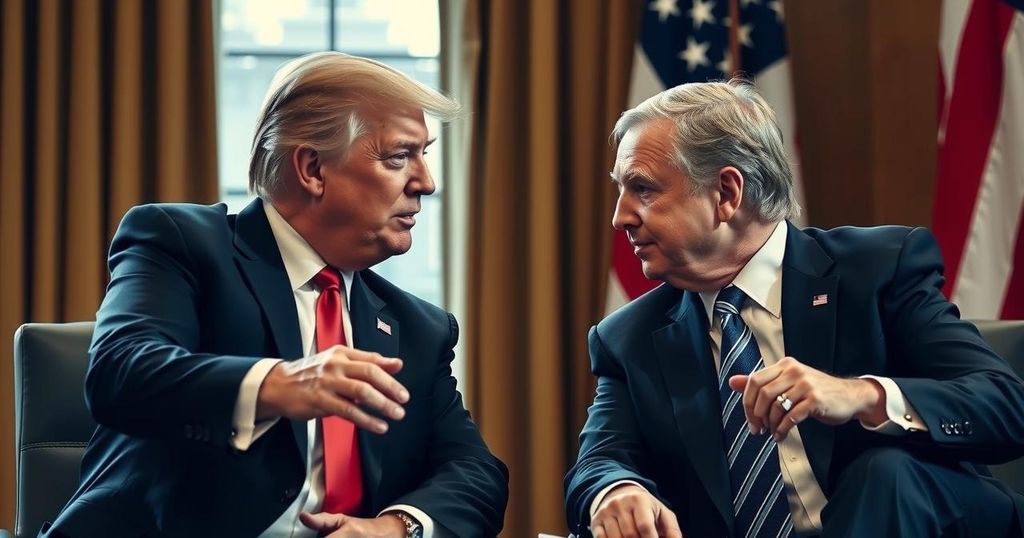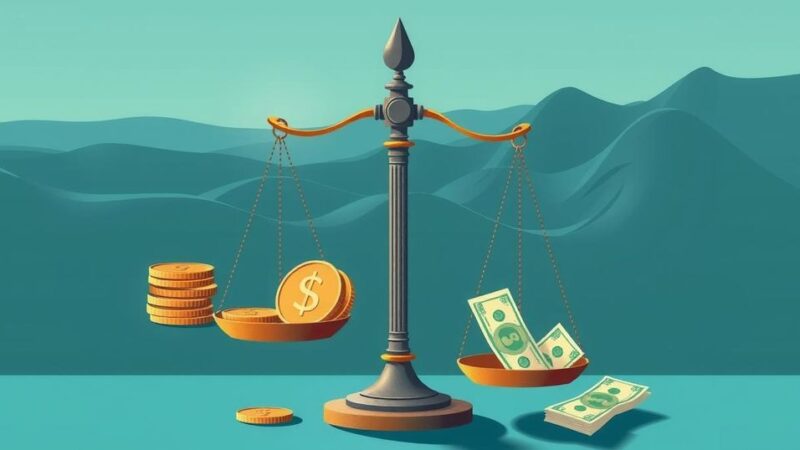The article discusses the decline of U.S. technological leadership and highlights the need for a new innovation policy, emphasizing support for startups and small businesses. It critiques the current administration’s stance on emerging technologies and presents Trump’s potential reforms to reverse these trends and bolster American competitiveness in the global market.
At the close of the 20th century, the United States held an unchallenged position as the global technological leader; however, by the early 21st century, significant changes have occurred. Currently, China dominates in 37 out of 44 essential technologies that are predicted to shape future advancements. The nation’s economic vitality and security hinge on reclaiming this technological preeminence. A renewed American innovation policy, which prioritizes empowering startups and small businesses, is essential for fostering breakthrough innovation. Both Donald Trump and JD Vance are well-positioned to effectuate these necessary reforms, with Vance’s venture capital experience providing him insight into the difficulties startups encounter.
If Vice President Kamala Harris ascends to the presidency, it is anticipated that she will perpetuate the Biden administration’s adverse stance toward innovation and emerging technologies. This administration has imposed substantial challenges on blockchain and cryptocurrency initiatives through significant legal actions against leading enterprises in this burgeoning industry. Furthermore, the Biden-Harris administration has taken an unwelcoming approach toward artificial intelligence, illustrated by an extensive executive order laden with regulations that disproportionately affect smaller entities rather than larger corporations.
In terms of biotechnology, the administration has acquiesced to a World Trade Organization agreement permitting countries to bypass patent protections on vital mRNA technologies, which were developed through American biotech innovations and hold broader applications beyond the pandemic context. Notably, in 2022, there was a remarkable shift indicating that more patents were granted to foreign inventors than to American ones. Between 2020 and 2022, Chinese inventors secured four times the number of global patents for artificial intelligence compared to their American counterparts, alongside holding the majority of 6G patents worldwide.
The United States’ ability to produce advanced technological components reveals a concerning trend as well. Despite being the originator of silicon technology, the nation currently manufactures only about 10% of the global semiconductor supply, which is crucial across various industries such as telecommunications and healthcare. Moreover, the majority of active pharmaceutical ingredient production occurs outside the United States, with over 75% of lithium-ion batteries, instrumental for electric vehicles and renewable energy, being produced by China.
This decline in American innovation and competitiveness accentuates the urgency for immediate action to reverse these trends. A collaborative effort among industry, academia, and government is vital to reinvigorate startups and small businesses, forming the backbone of the innovation economy. Fostering growth in small enterprises is essential since many groundbreaking innovations occur within these smaller entities. Historical examples abound, from Edison’s incandescent light bulb developed in a modest workshop to the Wright Brothers’ airplane conceived in a bicycle shop.
Recognition of the crucial role of small businesses cannot be overstated; entities with fewer than ten employees generate approximately 60% more patents per capita than large corporations, underscoring their importance in job creation and economic dynamism. President Trump’s 2024 Republican platform emphasizes addressing the needs of America’s working class, presenting policies geared towards supporting small enterprises.
The Trump administration vows to champion innovation, reversing previous administration policies that hindered technology growth in sectors like cryptocurrency and artificial intelligence. Additionally, it aims to restore America’s status as a manufacturing leader while eliminating regulations detrimental to job creation and innovation. JD Vance demonstrates a resolute understanding of startup challenges, collaborating on initiatives such as the Rise of the Rest venture fund, which seeks to support entrepreneurs beyond traditional coastal hubs.
Innovation has exhibited a troubling concentration, as over half of U.S. patents originate from merely five states. A Trump-led administration could transform the landscape, ensuring that all regions partake in the innovation economy through targeted support for forgotten communities. The Small Business Administration, under renewed focus, can advocate for investments in innovative initiatives nationwide, promoting optimism among small business owners. Additionally, the National Institute for Standards and Technology (NIST) is expected to facilitate the advancement of American technology as an international standard and reevaluate the transfer of innovations from academia to industry to mitigate their vulnerability under current administration challenges.
The U.S. Patent and Trademark Office will seek to simplify patent processes to encourage innovation and foster a collaborative dialogue recognizing the contributions of inventors to societal advancement. The National Council for Expanding American Innovation is poised to be revitalized under a new Trump presidency, emphasizing broadening participation in the innovation economy across diverse American communities. America’s historical spirit of entrepreneurship, rooted since the founding days, necessitates policy reforms that nurture startups and small businesses, reinstating the competitive edge of the United States in global markets.
The article addresses the decline of the United States in the global technological arena, particularly in key technology sectors where it has lost ground to China. It highlights the challenges posed by the current administration toward innovation, emphasizing the importance of startups and small businesses in economic growth and technological advancement. Former USPTO Director’s perspective presents a call for reform under potential new leadership, advocating for policies that encourage entrepreneurial activities and intellectual property protections.
The article argues for an urgent overhaul of U.S. innovation policy to reestablish the nation’s competitive edge against global challenges, particularly from China. Advocating for small businesses and startups, the discussion underscores the necessity of collaboration among various sectors to spur innovation. A potential Trump administration is positioned to implement reforms that bolster American innovation through supportive policies and regulatory relief, ultimately aiming to revitalize the economy and technological leadership.
Original Source: fortune.com






